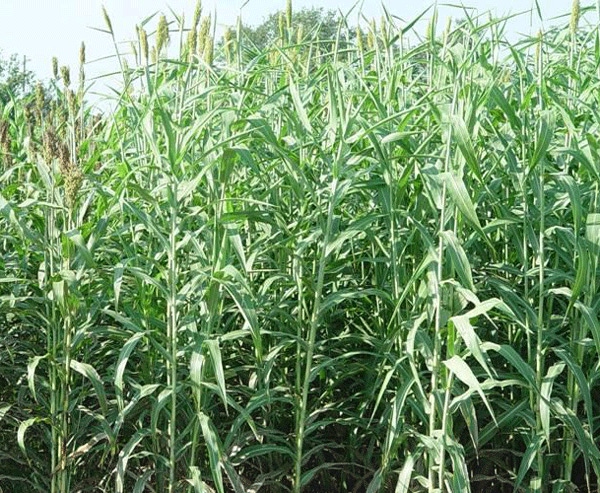
Florida to study sweet sorghum as energy source
• The grant is part of a $47 million package announced earlier this month to support eight bioenergy projects nationwide.• The team will focus on research aimed at enhancing production of sweet sorghum as an energy crop, he said.• The team will also explore sweet sorghum as a source of raw materials for chemicals used to make bioplastics and other products.
May 17, 2011

A University of Florida-led research team has won a four-year, $5.4 million federal grant to develop methods of producing energy from a familiar southern crop, sweet sorghum.
Known as a source of table syrup and cattle feed, sweet sorghum is also one of the region’s most promising feedstocks for making fuel ethanol, said Mark McLellan, dean for research with UF’s Institute of Food and Agricultural Sciences.
The grant is part of a $47 million package announced earlier this month to support eight bioenergy projects nationwide, McLellan said. Funded by the U.S. Department of Agriculture and Department of Energy, the package is part of a federal effort to reduce dependence on imported oil and cut greenhouse gas emissions associated with petroleum fuels.
The team will focus on research aimed at enhancing production of sweet sorghum as an energy crop, he said. The team will also explore sweet sorghum as a source of raw materials for chemicals used to make bioplastics and other products.
“There are many critical issues surrounding biofuels that are related to feedstock production,” McLellan said. “Yields, production efficiency, environmental impact, water requirements, are all important parts of this study. This project will help us understand how sweet sorghums line up as a feedstock candidate.”
The project will investigate sweet sorghum’s economic potential, sustainability and environmental impact, said Wilfred Vermerris, principal investigator and an associate professor with UF’s agronomy department and the UF Genetics Institute.
“Sustainability and environmental impact have been of concern to many people looking at bioenergy production,” Vermerris said. “We don’t want to create more greenhouse gases than we would using petroleum production.”
Will develop new varieties
The team will develop and evaluate multiple varieties to assess factors such as water needs, ability to grow in Florida soils, heat tolerance, and susceptibility to diseases and insect pests.
Researchers will look for varieties that yield large amounts of fermentable sugars, which can be fermented to produce fuel ethanol, he said.
They also plan to produce what’s called cellulosic ethanol, made from fiber in the plant’s crushed stalks using genetically engineered bacteria developed at UF by Lonnie Ingram, a distinguished professor in the microbiology and cell science department, and colleagues.
Ingram is one of seven co-principal investigators for the project and will coordinate juice and biomass processing experiments at the UF Ethanol Pilot Plant in Gainesville and the Stan Mayfield Biorefinery in Perry.
The other co-principal investigators are Jim Preston and K.T. Shanmugam of the microbiology and cell science department, who will work closely with Ingram; Amelia Dempere of the materials science and engineering department, who will coordinate characterization of biobased materials other than fuel; John Erickson of the agronomy department, who will oversee field and greenhouse experiments on water use in sweet sorghum; and Zhaohui Tong of the agricultural and biological engineering department, who will investigate methods of making biopolymers from the waste stream of cellulosic ethanol production.
The team plans to test promising sorghum varieties on a commercial scale. So Vermerris invited Bradley Krohn, president and chief technical officer of the Tampa-based firm U.S. EnviroFuels LLC to participate in the project as a co-principal investigator. Krohn will coordinate economic and life cycle analyses needed to assess the profit potential and environmental impact of the processes. Some of the experiments will take place at the Highlands EnviroFuels commercial-scale biorefinery in Lake Placid, Fla.
You May Also Like



